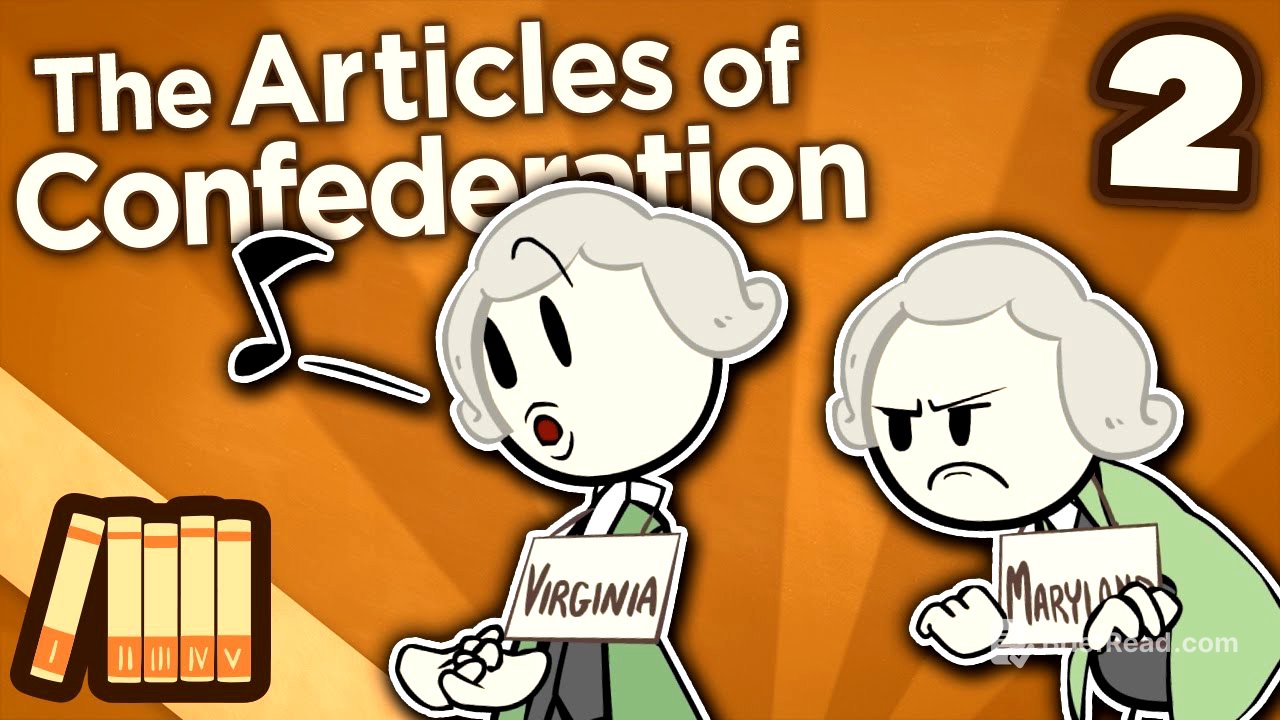TLDR;
This video explores the challenges faced by the newly formed United States under the Articles of Confederation. The video highlights the struggle to ratify the Articles, the lack of a strong central government, and the financial difficulties that plagued the nation during the Revolutionary War. Despite the challenges, the video emphasizes the importance of the French alliance and the eventual ratification of the Articles, which provided a framework for the fledgling nation.
- The Articles of Confederation were difficult to ratify due to disagreements over western territories.
- The Confederation government lacked power to effectively tax or raise funds, leading to financial instability.
- The French alliance played a crucial role in supporting the Continental Army and securing the ratification of the Articles.
The Articles of Confederation: A House Divided [0:00]
The Continental Congress presented the Articles of Confederation to the states, aiming to create a government that allowed for self-governance while enabling Congress to continue the Revolutionary War. However, the ratification process was delayed for over three years due to disputes over western territories. States like Maryland, with no western claims, feared that larger states with vast territories would gain more power and influence. Maryland refused to ratify the Articles unless Congress, not individual states, controlled the western lands. This led to a stalemate, with Virginia, a state with significant western claims, resisting Maryland's demands. Despite the delay, ten out of thirteen states ratified the Articles, making them the semi-official governing document.
Valley Forge and the Financial Crisis [2:30]
While the states debated the Articles, the Continental Army faced dire conditions at Valley Forge. The war continued, and the army suffered from lack of supplies and funding. Congress's attempts to provide support were hampered by their inability to effectively tax or raise funds. They resorted to printing money, which quickly became worthless, leading to a financial crisis. The states, preoccupied with their own issues, were reluctant to contribute to the general fund for the army. This lack of support from the states left Washington and his army in a precarious position, forcing them to resort to plundering local farmers for supplies. Despite these challenges, the army managed to survive the winter, but Washington's faith in the Confederation government was shaken.
The French Alliance and Maryland's Ratification [5:24]
While Washington struggled, Benjamin Franklin, serving as the U.S. ambassador to France, secured a crucial alliance with France. This alliance provided much-needed support for the Continental Army, including military reinforcements. The British, meanwhile, launched a campaign against the Southern states, hoping to crush the rebellion. Their victories brought them closer to Maryland, the only state that had not yet ratified the Articles. Facing pressure from the British advance and the French, who demanded ratification as a condition for further aid, Maryland finally agreed to join the Confederation. This marked the official establishment of the Articles of Confederation, but the challenges facing the new government were far from over.
The Weaknesses of the Confederation [6:23]
Despite its official status, the Confederation government remained weak and ineffective. States continued to ignore requests from Congress, failing to provide adequate funding for the army. Congress itself struggled to function, with delegates often failing to attend meetings, leading to a lack of quorum. The financial crisis continued, with the Continental Army facing starvation and Congress unable to raise sufficient funds. The video concludes by highlighting the need for a strong central government to address the financial instability, stabilize the currency, and establish reliable sources of revenue. The Confederation Congress needed a financier to restore order and demonstrate to the world that the United States was not a government on the verge of collapse.









